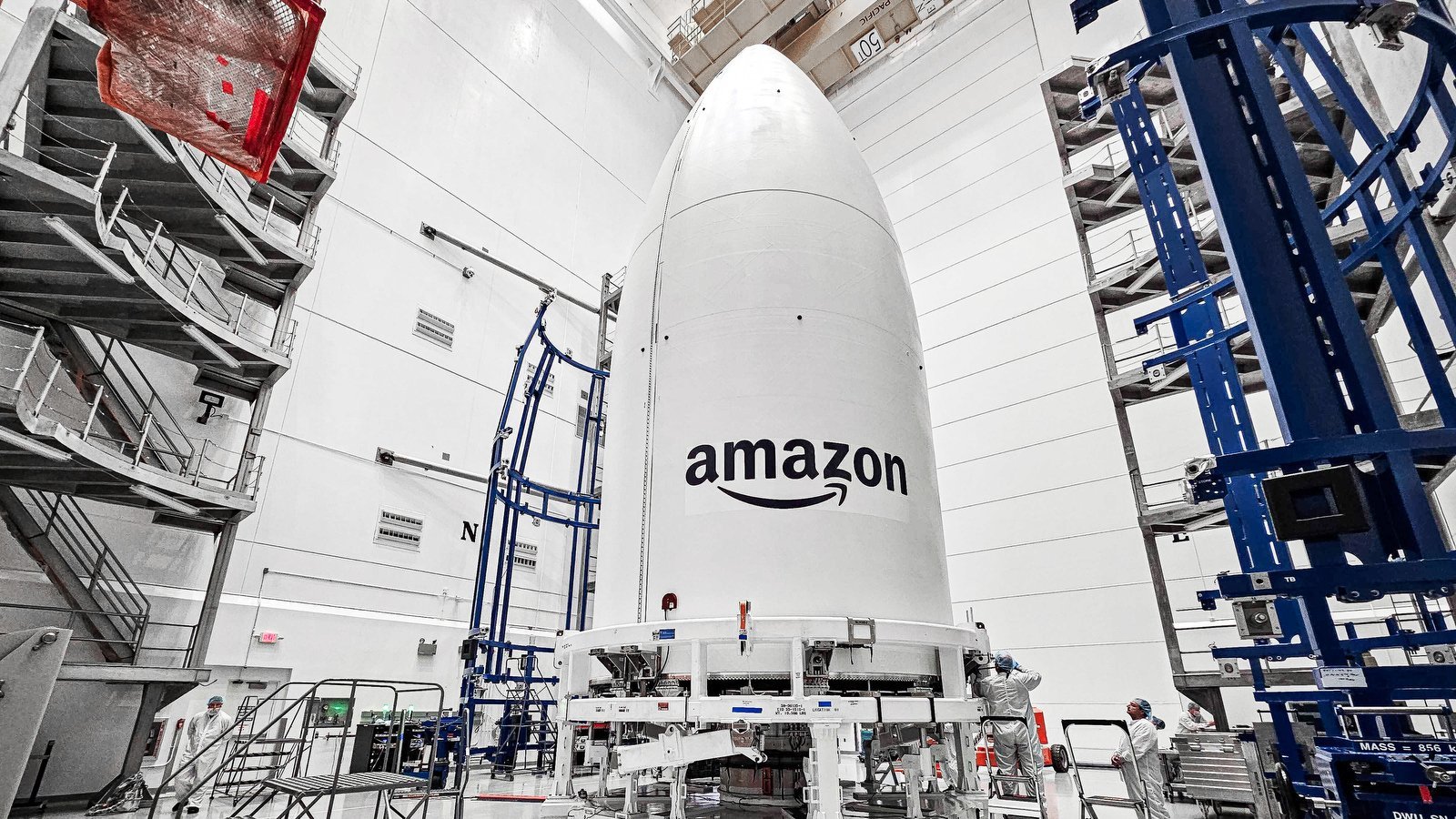Amazon is set to launch the first batch of satellites for its highly anticipated Project Kuiper next week, marking the company’s official entry into the space-based internet sector. The deployment of 27 satellites via an Atlas V rocket is scheduled for April 9 from Cape Canaveral Space Force Station in Florida, with the goal of delivering high-speed internet globally, including to Australia. Project Kuiper is Amazon’s answer to Elon Musk’s Starlink and aims to establish a network of over 3,200 low-Earth orbit (LEO) satellites.
It will provide broadband services to businesses, governments, and consumers worldwide. The initiative is of particular interest to Australia, where rural and regional communities have long struggled with connectivity issues. The launch comes just a month after reports surfaced that the NBN is considering a major deal with Amazon to use Kuiper satellites as a direct competitor to Starlink.

If finalised, this agreement could give Australians, particularly those in remote areas, a new option for high-speed satellite internet. Currently, NBN’s Sky Muster satellite service has been losing customers to Starlink, with the number of users dropping from 109,000 in mid-2022 to just over 81,000 by early 2025. A partnership with Kuiper could help NBN stem those losses and provide Australians with an alternative broadband option.
Amazon executives previously confirmed that Australia would be one of the first countries to gain access to Kuiper’s network. The service will utilise compact user terminals, with prices expected to be under $400. These terminals will be capable of speeds ranging from 100Mbps with a smaller dish to 1Gbps with a larger setup.
Amazon also claims its mesh network technology can move data 30% faster than terrestrial fibre optic cables. The Kuiper launch on April 9 will mark the heaviest payload yet for the Atlas V rocket, with the satellite cluster flying in the rocket’s most powerful configuration. While Amazon successfully launched two prototype satellites in late 2023, this will be the first time its full-scale satellite design is put to the test in orbit.
If Amazon’s Kuiper deal with NBN materialises, Australian retailers like JB Hi-Fi, which already stock Starlink terminals, could soon expand their offerings to include Kuiper devices. With speeds projected to reach up to 1Gbps in the future, Kuiper could become a serious contender in the Australian broadband market. The next few months will be crucial in determining how quickly Kuiper can roll out services in Australia.
If Amazon’s satellites perform as expected, competition in the satellite broadband sector will no doubt heat up..
Technology

Amazon to Launch First Kuiper Internet Satellites Next Week, Oz Set to Benefit

Amazon is set to launch the first batch of satellites for its highly anticipated Project Kuiper next week, marking the company’s official entry into the space-based internet sector. The deployment of 27 satellites via an Atlas V rocket is scheduled for April 9 from Cape Canaveral Space Force Station in Florida, with the goal of... Read More















